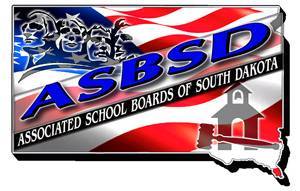Three bills with important implications for K-12 education are headed to Gov. Dennis Daugaard’s desk for final approval after Representatives and Senators voted to pass conference committee recommendations.
Senate Bill 28: The amended version of the bill adjusting general fund property tax levies for school districts passed the House and Senate by 62-5 and 29-5 votes, respectively.
The commercial levy was moved to $9.20 per thousand dollars of valuation– an increase of $0.572 from last year. The agricultural levy was set at $2.09 – a decrease of $0.23 from last year. The levy for owner occupied property was changed to $4.296 – an increase of $0.267 from last year.
Senate Bill 15: The increase to the special education levy for school districts passed the House by a 63-3 vote and the Senate at 25-9.
The maximum level for the special education levy was raised to $1.552 per thousand dollars of valuation and a state aid qualifying level of $1.352. These points were included in the original proposal of SB 15.
The bills acted as a vehicle for school districts to receive the proposed three percent increase in state aid. Representatives of Gov. Daugaard’s administration warned in prior committee hearing testimony if either levy bill failed to pass the state aid increase would be in jeopardy.
Senate Bill 235: The omnibus economic development moved through the House and Senate with little resistance. Representatives voted 60-6 and Senators 31-2.
“We as a legislation managed to come together and work together to find a bipartisan compromise,” Sen. Corey Brown (23) said.
SB 235 would create the Building South Dakota fund, which would in turn establish the Workforce Education fund.
Thirty percent of the dollars collected – from fund projects tax revenue and from unclaimed property revenue from banks – for the Building South Dakota fund would be appropriated to the Workforce Education fund.
The dollars would provide a 25 percent increase in state aid for ESL students, funding for CTE programs and potential dollars for education programs preparing students for the workforce.
A conference committee met to fine tune the bill and attached amendments that included a $7 million one-time funding start up for the Building South Dakota, would not allocate dollars for the fund if the state did not provide the annual increase to K-12 education or Medicaid and added a provision that the state aid increase for ELL students for fiscal years 2014, 2015 and 2016 before transferring the increase to the general fund.
ASBSD Executive Director Wade Pogany was encouraged by the progress made in the legislation for K-12 education today.
“I think this definitely signifies a change in the mentality of the legislature on how schools are funded,” Pogany said. “These bills are a big step in the right direction for K-12 education funding.”
For updates on these bills, check the ASBSD blog and bill tracker.
